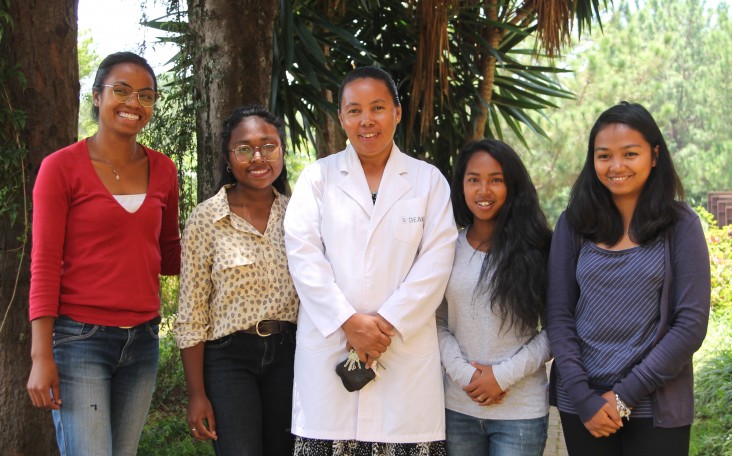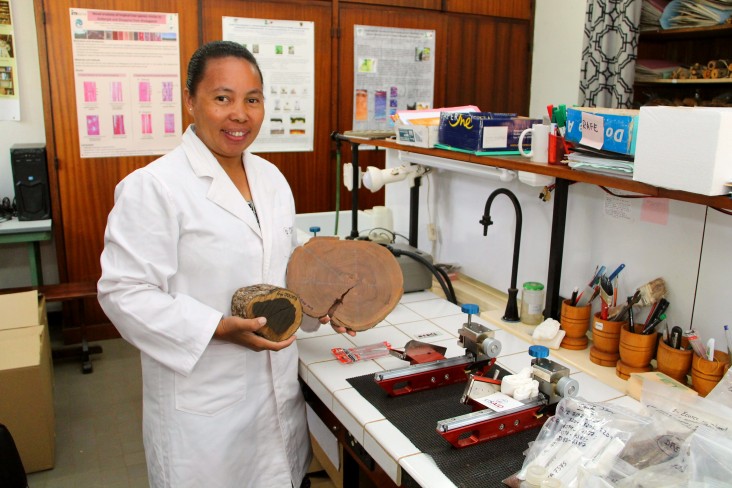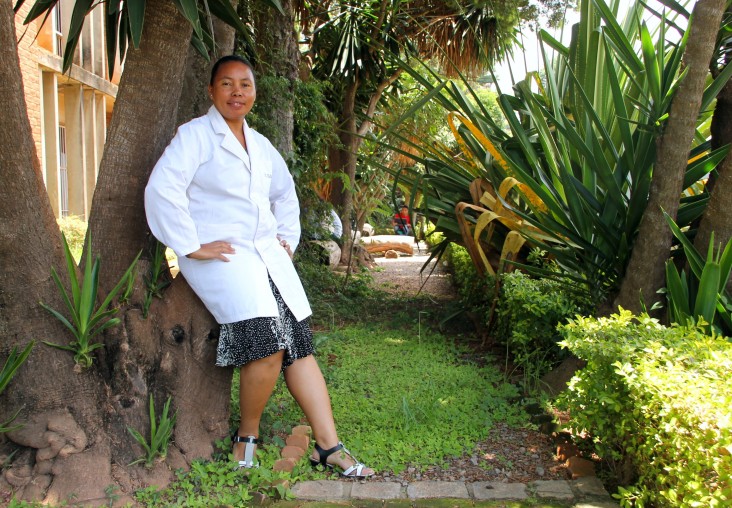Speeches Shim

Dr. Bako Harisoa Ravaomanalina, believes women are becoming scientific leaders in Madagascar. She is a researcher at the University of Antananarivo, a USAID-Partnerships for Enhanced Engagement in Research (PEER) grant recipient and is building a reference library for Malagasy rosewood, palissander, and ebony. She recently sat down with us to discuss her project and how more and more Malagasy women are making their mark in science.
Can you tell us a bit about the project you’re doing with your PEER grant?
I have just started my project. It aims to set up a reference collection of rosewood, palissander, and ebony by collecting samples from across all of Madagascar, hopefully. Then we will set up nurseries to (grow young plants) and promote the planting of rosewood, palissander, and ebony throughout Madagascar.
This project is very important for Madagascar. We do not have a reference collection for these woods. It does not exist yet in Madagascar. There are a hundred species of Dyospiros (ebony wood) and a dozen species of Dalbergia (rosewood and pallisander). So before there can be a determination of their scientific names, they have to be put in a collection.

Is it more difficult to advance in science if you’re a woman than if you’re a man?
No, not at all in Madagascar, but in other countries, yes. In Madagascar, everything is possible if you have the will power. I don’t know, maybe because I lived in Tana that I had opportunities. But in Madagascar, you can always succeed. It is possible for girls too.
So for girls Madagascar is a good place to study science?
In all of my classes since high school there were majority girls – 70% girls and 30% boys. Parents believe they can send girls to school. So girls can make a big change to the world of science. In Madagascar, the education system encourages girls to go to school. So we can work hard, with will power, then we can go far, because the system in Madagascar promotes the education of girls. All of the students who have chosen to study the botany and anatomy of wood are girls. And they work well too. They are serious.
What was the reaction – yours and the scientific community in Madagascar – to your receiving the PEER grant?
Oh, I was happy because it's a very important fund. Very significant. Nobody in my department has ever received such a sum for a project. And then, I am also passionate about wood anatomy and everything around that and the PEER grant provides me the chance to be involved once again in the identification of precious woods in Madagascar.
All of my colleagues congratulated me for having received this ... uh ... I would say, for us it's really an honor to have received such a large sum for research, because in Madagascar we do not have as many opportunities for subsidized research. It is very important.
How did you become a scientist and what led you to study Madagascar’s precious woods?
After finishing my baccalaureate, I completed training at the Ecole Nationale Supérieure to become a teacher. Then I studied for my advanced degree at the University of Antananarivo followed by my doctorate. And I am now preparing this project. It is to tell you that it is only after my Masters degree that I chose to specialize in the anatomy of wood. This opened me doors to work on the baobabs of Madagascar. I worked on the anatomy of wood, determining the dates (ages) of these giants of the forest. Then, I also had the opportunity to work on the precious woods of Madagascar.
What does it take for a student to succeed in this area?
You must be very dynamic, always writing projects, in order to advance in science. At the University of Antananarivo, teachers are now starting to age, so I'm already trying to prepare the next generation in my discipline, which is wood anatomy and botany, I try to ensure that young people can have the opportunity to pursue their studies and show their personality through science.
For young people, therefore, the message is that you always have to work. You must always write, you must always go ahead regardless of the obstacles you may encounter, especially when you are a girl or a woman.


Comment
Make a general inquiry or suggest an improvement.